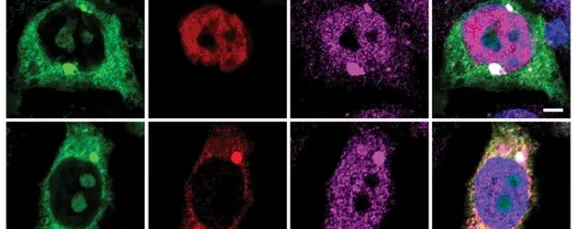
Brain Communication Networks
Goals
The Vertically Integrated Projects (VIP) Program is a transformative approach to enhancing higher education by engaging undergraduate students in long-term, large-scale, multidisciplinary research project teams that are led by faculty. Students earn academic credits, while faculty benefit from the design/discovery efforts of their teams. These classes are: (1) embedded in faculty mentor’s scholarship and exploration, (2) projects that are long-term and large-scale, continuing for many years, (3) part of the curriculum and graded. Students earn credits toward their degree and can take the course continuously for multiple years. Learning outcomes focus on development of both disciplinary and professional skills. In essence, it is a multi-year, team-based research project where you can grow in your scientific skills, knowledge, and mindset while earning credit. You may sign up for a semester and then opt in to future semesters to continue on the projects. See what we did in previous semesters of the course here: https://sites.google.com/view/arizonabrainvip/.
In the Brain Communication Networks VIP-CURE course (NSCS 397), students apply genetics, basic coding skills, flow cytometry, and protein informatics to predict and then test interactions between cell types in the brain of a simple model organism, Drosophila melanogaster (fruit fly). We will focus on discovering and mapping ligand-receptor pairs in the brain that are relevant for brain function, aging, and/or disease. Each team will develop and then contribute expert advice to assemble a picture of how this inter-cellular communication in the brain occurs. We will be making new scientific discoveries that we will go on to share with the public. You can join the class with one set of skills and learn the others by interacting with other teams of students in the course. Do not be intimidated, this course is for everyone!
Issues Involved or Addressed
- Scientific programming
- Genetics
- Experimental design
- Quantitative analysis
- Modeling
- Microscopy techniques
Methods and Tech
- Genetics
- Programming (Unix, R, others to be determined)
- Bioinformatics
- Experimental design and evaluation
- Microscopy
- Flow cytometry
Academic Majors of Interest
Open to all majors, including:
- Neuroscience and Cognitive Science (NSCS)
- Ecology and Evolutionary Biology (EEB)
- Molecular and Cellular Biology
- Computer Science / Data Science
- iSchool
- Biochemistry
- Physiology
- Math
- Honors College
Preferred Interests and Preparation
Prerequisite Skills: Basic understanding of cells and molecules (introductory biology or equivalent) and/or basic computer programming experience
Attributes for Success: Work well independently and in teams, passion and dedication, creativity and curiosity, leadership skills, organization, perseverance
Application Process
The application for the VIP-CURE Research course, NROS 397 (Brain Communication Networks) is now Closed for Fall 2025. Please check back at the beginning of Spring 2026 registration.
If you’ve never done research in the biological sciences before and want to see if it’s for you, this is the right place to start.
Important Information:
Credits: Three credits. Estimated 25% didactic, 75% hands-on work (in person in the lab or using computer software platforms)
Modality: In-Person. Research team meeting (Tuesdays, 9:30 - 10:45 a.m.), 2 hours of laboratory work per week (spread across Wed-Fri mornings). This is a fully in person course with an attendance requirement for all sessions. This course is taught in a unique format. The entire class meets once a week on Tuesday mornings 9:30-10:45. This time is required for all students, so if you cannot make the Tuesday morning meeting due to class conflicts, please do not apply. The students are put into groups and come to two 50-minute lab sessions scheduled between Wed and Fri.
Criteria for selection are primarily about ensuring a diverse mixture of students that will bring many different perspectives and skills to the course (academic level, skill sets, URM/first-gen students, honors/non-honors). Class size is limited. Selected students will be notified shortly after the application due date and will be enrolled by the NSCS Program. Students not selected can re-apply for enrollment in the following semester if desired.
Best majors for student enrollees: NSCI, NSCS, MCB, Biochemistry, Bioinformatics, Biology, Physiology. Others are also very welcome and should apply (this is not an all-inclusive list).
What do students do? Here is a sample wiki page produced by students!
How to apply? Check back for Spring 2026 application at start of registration period for Spring 2026


